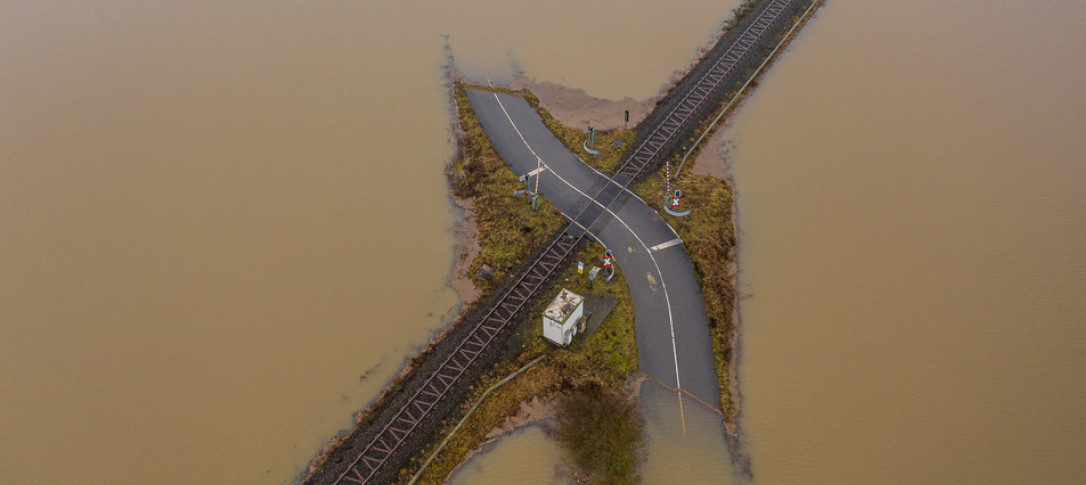
Heatwaves in Europe and India. Record-breaking floods in Pakistan, Australia, and the Democratic Republic of Congo. Extreme weather events are only going to become more frequent, more intense, and more damaging to human health and critical infrastructure as climate change progresses.
Climate resilience is defined as the “capacity of social, economic and ecosystems to cope with a hazardous event or trend or disturbance”. The key focus of increasing climate resilience is to reduce climate vulnerability at all scales of society.
How can societies, particularly the UK, become more climate resilient? By gathering speakers and audience members from across academia, industry, government, and grassroots organisations for a panel discussion, the Institute for Security Science and Technology (ISST) aims to identify interdisciplinary solutions and actions that we can recommend to funding bodies for further research and attention.
The event will be chaired by Professor Jordan Giddings, Non-Executive Director for the Met Office Board, Chief Scientist at Improbable, and ISST Honorary Principle Research Fellow. He has previously worked with the British government in a number of roles, most recently as Head of Defence Capability Assessment, leading on areas including digital, innovation, transformation and cyber, and previously as Deputy Chief Scientific Advisor for both National Security and Transport.
The event will begin with short presentations from each speaker, including Professor Samer Bagaeen, Dr Ronita Bardhan, and Ellie Murtagh.
There will then be a panel discussion chaired by Professor Giddings, during which there will be opportunities for engagement and discussion from in-person and online audience members.
The panel discussion will then be followed by a catered lunch and networking.
Speaker biographies
Professor Samer Bagaeen is a Chartered Town Planner and a Fellow of the Royal Institution of Chartered Surveyors. He is the Founding Professor of Planning at the University of Kent. Prior to this, he worked with 100 Resilient Cities, an organization pioneered by the Rockefeller Foundation in New York, as Associate Director with the City Relationships team. He established the planning school in Brighton in 2008 and before that worked at the universities of Aberdeen and Strathclyde. He served as Director of Urban Studies at the National Resources Investment and Development Cooperation (Mawared) in Jordan with responsibility for master planning former military sites. Samer was elected to Brighton and Hove City Council in May 2019, serving on the COVID Outbreak Emergency Board, the Health and Wellbeing Board, the 2030 Net Zero Working Group, and the Circular Economy Working Group. He is a founding member of the Sussex Hydrogen Group.
Dr Ronita Bardhan is an architectural engineer and urban studies educator, with a PhD in urban engineering. Bardhan directs the research group Sustainable Design Group at the University of Cambridge, where she works on data-driven intelligence of built environments can effectively address sustainability goals and policies. Bardhan works on climate heat stress & health in built environment. She has extensively worked in Slum Rehabilitation (social) housing (in India, Indonesia, Ethiopia, Kenya, South Africa and Brazil). Bardhan uses data-driven methods that couples architectural engineering, AI and machine learning with social sciences to provided built environment solutions for health in resources constraint societies.
Ellie Murtagh is UK Climate Adaptation Lead for British Red Cross, a new role established to assess the humanitarian climate related risks and impacts that individuals and communities face and will face in the UK. Through this role, Ellie identifies where the British Red Cross can add most value by supporting communities to anticipate, prepare for, respond to, and recover from the impacts of climate including developing partnership with key stakeholders.
ISST Talks are hosted by the Institute for Security Science and Technology, Imperial College London’s hub for security research. These events convene thought leaders and relevant stakeholders to discuss grand challenges in security, with the aim of facilitating knowledge exchange.
About the Institute for Security Science and Technology (ISST)
Security is often only viewed through the narrow lens of conflict and war. Our mission at the Institute for Security Science and Technology is to challenge that perception and demonstrate the breadth and depth of a topic that touches everyone in society, wherever they are in the world.